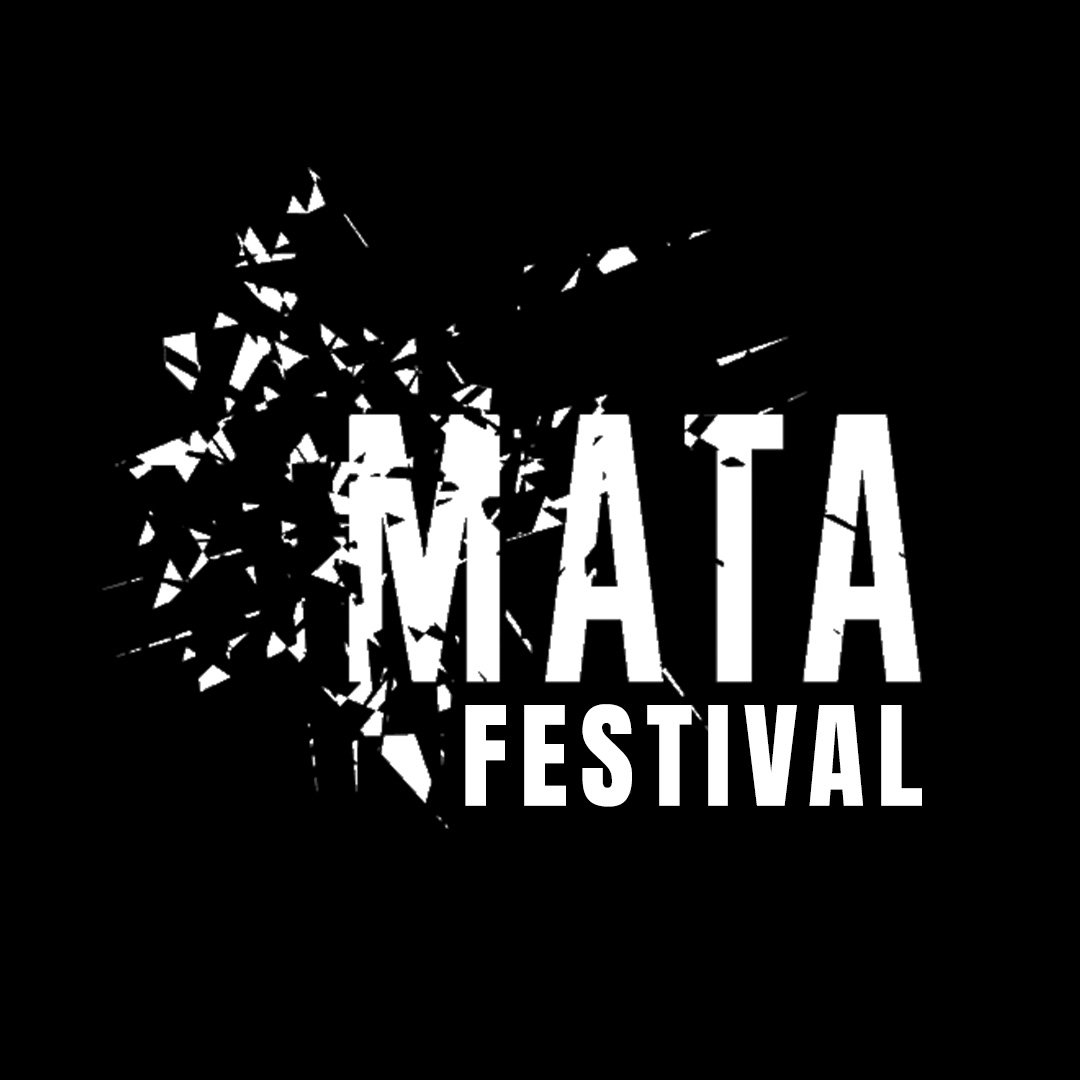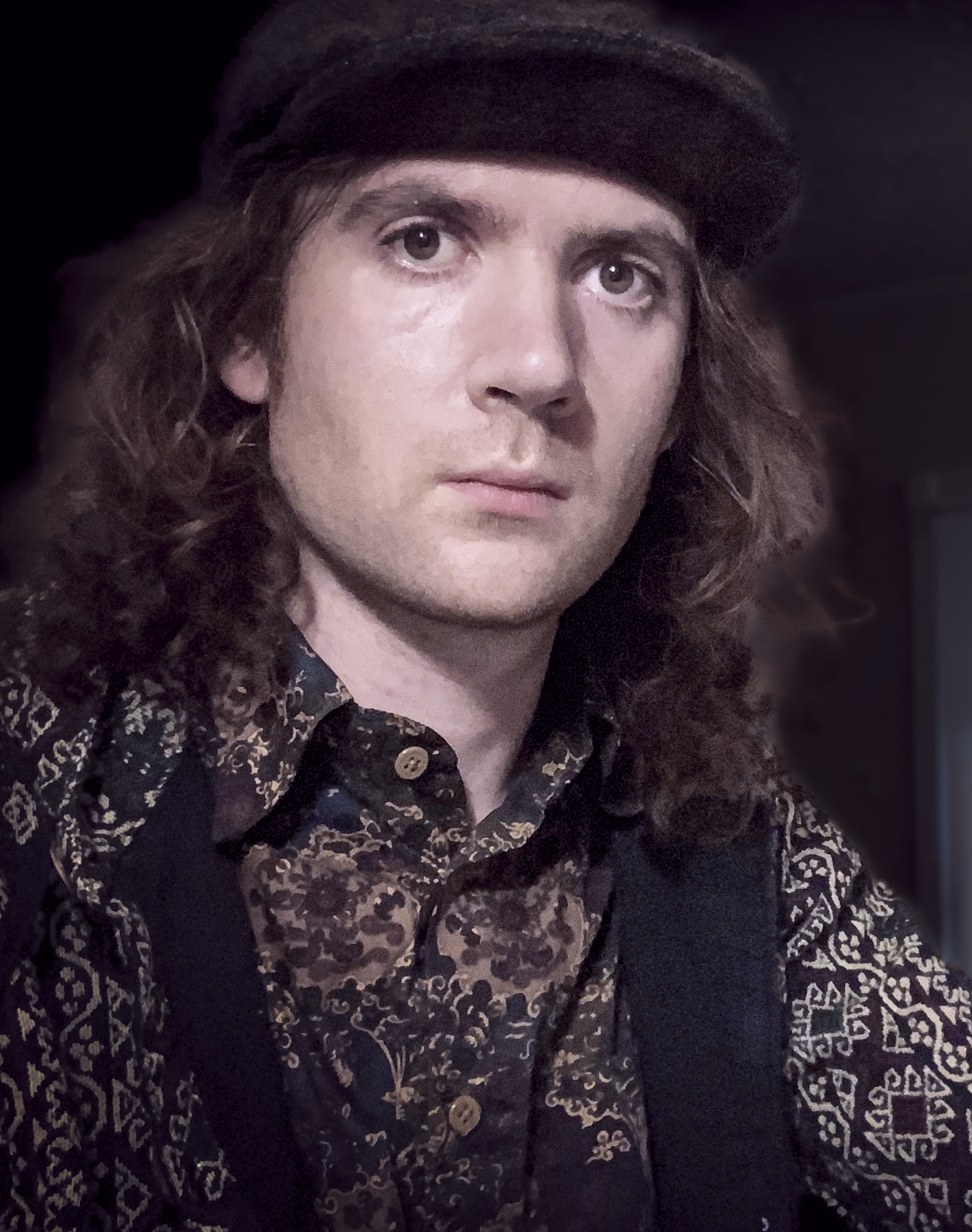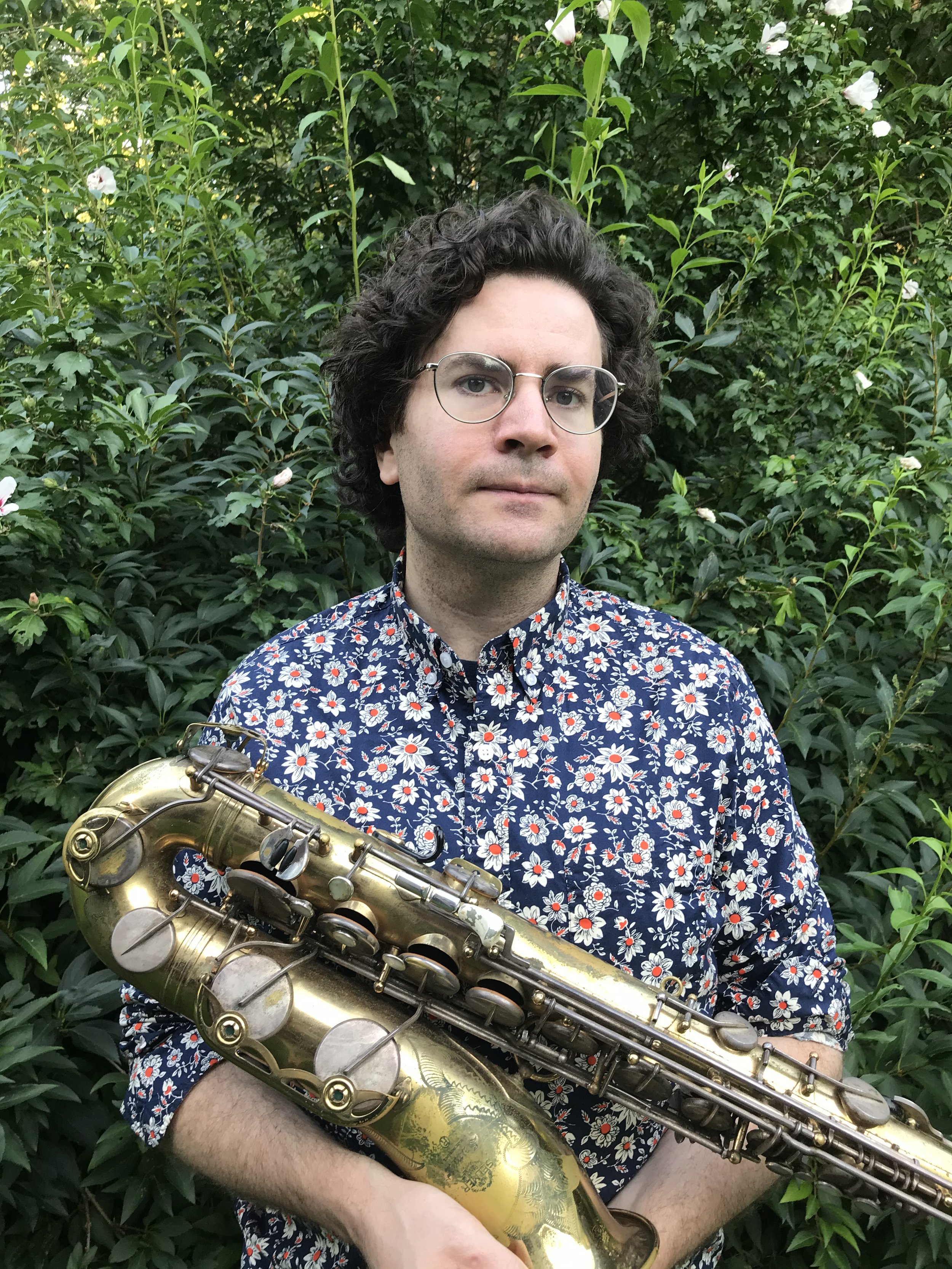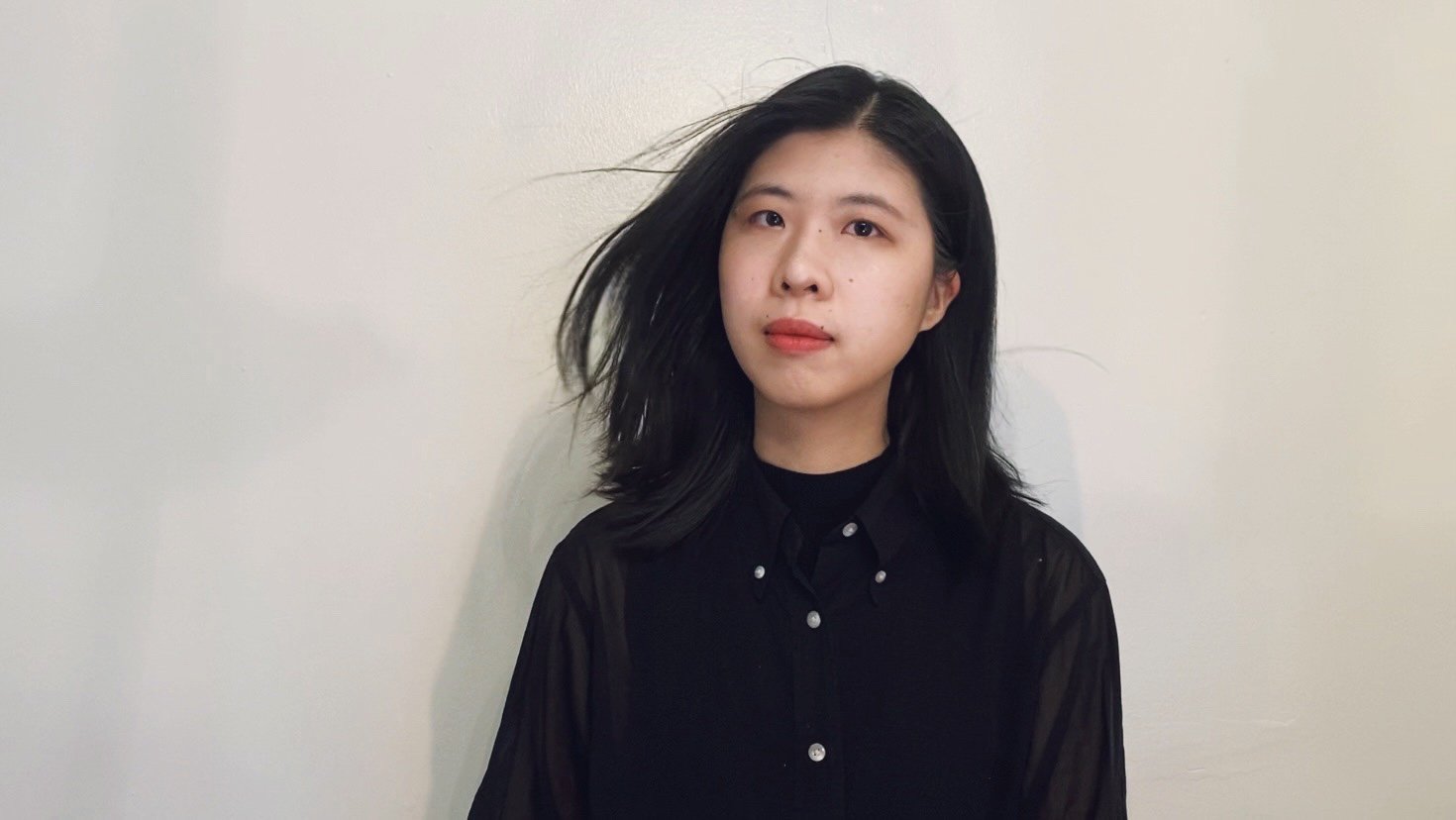2022 MATA Festival
Night 3 Artist Bios
John Aulich
John Aulich (b. 1992) is a US-based British composer whose works are performed internationally, including in the United Kingdom, United States, Israel, Thailand and Australia, by world-renowned performers such as ELISION Ensemble, Kathryn Williams, Joshua Hyde, Richard Craig and Tom Bell. John’s music spans a number of broad themes, including viscerality, ambiguity of meaning, sensuality and touch, and the philosophical and political connotations of music and notation. His work is characterized by evocative, highly-charged and volatile sound-worlds stemming from the physicality of performance. John combines the erotic and the anxious, circumscribing a complex interplay of potential narratives that create fissures and ruptures in the listening experience. A particular focus of his latest work is abject, disgusting and surreal sound-worlds. On the completion of his undergraduate degree at the University of Huddersfield in the UK, he was awarded the Chancellor’s Prize, the J. Wood & Sons Prize for Composition and the Truscott Prize for All-round Achievement. As a recipient of a fee waiver, John received his Masters degree at the same institution, under the tutelage of Aaron Cassidy and Bryn Harrison. He is currently a Presidential Fellow at the University at Buffalo, New York, where he is completing his PhD with David Felder. His string quartet, slacken tired shrouds was recently a finalist for the 2022 MIVOS/Kanter prize.
Program Notes
The title was inspired by statuettes of the Apis Bull, most of which have in their old age taken on a greenish hue. Specially selected Apis Bulls were extremely sacred at certain points in the long history of Ancient Egypt, and are believed to have been buried in an underground temple complex, the Serapeum at Saqqara. When the temple was discovered in the 19th century, they found something very interesting: twenty-five enormous, meticulously crafted granite sarcophagi. All but one were found empty. “Green, or beautiful in green” consists of three separate sound-worlds. The outer worlds were inspired, in a broad and allegorical way, by rays of light cutting into the darkness in ancient temples and animating the spirits and gods within. The mid-section is the raging spirit of the Apis Bull, confined after death to his granite box, his horns catching its smooth interior surfaces. As rays of light fall once more, he becomes an aspect of Osiris, dematerializing as he makes his journey to the other world across the sky.
Francisco del Pino
Francisco del Pino is a composer and guitarist originally from Buenos Aires, Argentina and currently living in Princeton, New Jersey, where he is a doctoral student in composition at Princeton University. His music, which draws influence from both classical and vernacular traditions, revolves around process and pattern and is usually characterized by an extensive use of counterpoint. His debut album Decir, a song cycle on texts by Argentinian poet Victoria Cóccaro described as “a stunning art-song hybrid” (Bandcamp Daily), was released on New Amsterdam Records in May 2021.
Program Notes
“Atrapa el pez dorado” is the title of the Spanish edition of “Catching the big fish”, David Lynch’s book on meditation and creativity. Lynch says that ideas are like fish. Small fish swim on the surface, so it is not difficult to catch them. But to catch a big, golden fish, it is necessary to enter deeper waters: one way to do this would be the sustained practice of meditation. The idea for this piece appeared to me almost without searching for it—one morning, when I woke up, it was there: I just needed to write it down. I am not a meditation practitioner, but I thought that, perhaps unintentionally, I had been lucky enough to catch un pez dorado, to catch a big fish. Or maybe this music is not the fish, but the fishing boat.
Wajdi Abou Diab
Wajdi Abou Diab was born in Lebanon in 1991, obtained his license in piano in 2014, then in musical composition and electronic music in 2016, from the National Conservatory of Music of Lebanon, where he also teaches piano, harmony, and music theory. And he is currently pursuing a master's degree in “Traditional Musicology” at Antonine University. Founder and director of the "Lebanese Living Composers Channel (LLCC)" and "Free Music Education for All" projects, and he is also founder, principal conductor, artistic director, and arranger of "Orchestra El Mokhyam" and "Choueifet Orchestra and Chorale". And recently, he was chosen as the Global Youth Ambassador to represent his country at the “Global Music Conference 2021”. Wajdi has released several music albums so far, including "Dances for the assymetrical world", "Samme'na shi mna'erfou", and "Da'watou mawten Ila l 'asha'", and has published several books of music like "Arabic Folk Tunes", and "Longa and Sama'I with piano accompaniment". He has also received numerous honoraria for some of his compositions, such as “Cry from the frozen pole” which won the Honorable Mention and the Special Prize by Cluster at the LIMF 2020 Composition Competition, and “The Youngest” which received a certificate of appreciation from Cergy Pontoise Orchestra-Studio after its participation in the 12th International Meeting of Young Composers in Cergy Pontoise. In addition to having won numerous calls for sheet music such as “Deterritorializing the Realm of New Music”, by Anoush Moazzeni and Canadian music, for his piece “TAFA'IL” for prepared piano and tape, the call for sheet music by Dustin White project (album "Ri Ra") for his piece "THE AWISS DANCE" for solo bass flute, David Bohn's call for sheet music 15 minutes of fame for his piece "Dabket El 2020".
Program Notes
“A Tune for Amer’s Horn” is a piece for French horn, piano, and double bass, dedicated to my friend Amer Slim. This piece includes an introduction and four consecutive acts. Inspired by the historical sound of the horn used as a calling instrument during hunting trips, this piece describes the effect of the Horn sound on the prey’s psychological state during different situations in which the prey can live while being chased. Through several extended Techniques that the modern French horn can deliver, the composer recalls the elements of the Arabic “Maqam” world and the traditional Arabic dance rhythms and pushes the performer to discover new sounds and colors on the instrument.
Christian Dimpker
Christian Dimpker is a composer and art theorist with academic studies in Philosophy, History and Sound Studies, as well as a doctoral dissertation in Musicology / Composition. Dimpker’s compositions explore unconventional fields of notation. This is enabled by an extensive notation system for extended playing techniques and electroacoustic music. This treatise with the title Extended notation: The depiction of the unconventional has been released by the LIT Verlag publishers. Currently, Dimpker further extends this research to the fields of visual arts, theatre and movement. The monograph Kinetic notations for the visual and performing arts forms the basis of this work. It will be released in 2022 by Transcript Publishing / Columbia University Press. Residencies inter alia at Cité des Arts Paris, EMS Stockholm, Tokyo Arts and Space, SWR Experimentalstudio, St John’s Smith Square, and Kuenstlerdorf Schoeppingen. Grants by the Berlin senate, (concert funding, cultural exchange Japan / Sweden), German government, E.ON foundation, Lotto foundation, German Artist Fund. Performances in Germany, Japan, Spain, Portugal, Romania, Serbia, the USA and Australia by renowned ensembles, such as Elision, 2e2m or Resonanz. Engraving works include Helmut Lachenmann’s Schreiben for Breitkopf & Härtel and teaching assignments have been held in the UK, Germany, Hong Kong and Sweden.
Program Notes
“String quartet I” is an early work of transition. It was written during a period of migration to Hong Kong. I started it in the rural residency place of Schöppingen (Germany) and finished it on the balcony of a skyscraper in Kowloon. The approach was experimental in the sense that I tried to bypass notation software and compose it entirely as a graphic work, also with regard to classical compositional techniques such as retrograde and inversion. This is where the even grid of the first form section stems from. At the same time, “String quartet I” is one of my more traditional works. No notated electroacoustics are used. Instead, the work returns to the historical form of the string quartet and tries to translate it to the 21st century, which it will – most probably – not survive. The basis of the notation is, as in all previous works, my treatise Extended notation that unfolds its power here mainly with regard to the percussive possibilities of the string instruments.
Travis Laplante
Travis Laplante is a saxophonist, composer, improviser, and qigong practitioner who is based in southern Vermont and New York City. Laplante leads the acclaimed tenor saxophone quartet Battle Trance and Subtle Degrees and his duo with drummer Gerald Cleaver. Laplante also recently composed long-form works for new music ensembles the JACK Quartet and Yarn/Wire while performing alongside them. Laplante is known for his raw solo saxophone concerts and being a member of the avant-garde quartet Little Women. Laplante has toured his music extensively and has appeared at festivals such as The Moers Festival (Germany), Jazz Jantar (Poland), Saalfelden (Austria), Jazz em Agosto (Portugal), Earshot (Seattle), Hopscotch (North Carolina), and the NYC Winter JazzFest. As a composer, Laplante has recently been commissioned by the Lucerne Festival (Switzerland), the JACK Quartet, Roulette (Brooklyn, NY), Yarn/Wire, Yellow Barn Music Festival, and The Jerome Foundation. As a qigong student of master Robert Peng, Laplante has undergone traditional intensive training. His focus in recent years, under the tutelage of Laura Stelmok, has been on Taoist alchemical medicine and the cultivation of the heart. Laplante is passionate about the intersection of music and medicine. He and his wife are the founders of Sword Hands, a qigong and acupuncture healing practice based in Putney, Vermont.
Program Notes
While composing “The Obvious Place”, I had one of the most beautiful experiences of my life. One day I was improvising on the saxophone in my studio with my eyes closed, facing a glass door. I was struggling with writer’s block, searching for what came next musically in the composition. When I opened my eyes I saw, perched on my car just a few feet on the other side of the glass door, a broad-winged hawk staring directly into my eyes. I continued to play, eyes locked with the hawk. She was obviously listening to the sounds and responding by rhythmically moving her body in an otherworldly way, all while maintaining piercing eye contact. At first, I doubted that it was the sound of the saxophone that was related to her movements. However, if I stopped playing she stopped moving. I felt a communication unlike anything I had experienced before. It was a connection so ancient and so generous. In that moment I could feel that birds and humans once shared a common language, and that it is still possible to remember and participate in this communication today if one is willing to be trained. I always imagined this shared language taking place through sound, but it was clear that she was teaching me a language where sound and movement are not separate. This communication continued for around fifteen minutes, and as time passed I honestly couldn’t tell who was following who. I didn’t know whether my notes were being responded to by the hawk’s movements or whether my notes were responding to the hawk’s mysterious movements. Eventually, the hawk flew directly at the glass door toward my face, and turned at the last second and flew away. After this experience, the idea of writer’s block seemed ridiculous and irrelevant. The most prominent musical motifs within “The Obvious Place” are the result of this magical interaction.
Shuyu Lin
Shuyu Lin is a doctoral student and an associate instructor in the composition department at the Indiana University Jacobs School of Music. She earned a B.M. in Composition from the Shanghai Conservatory of Music in 2018, studying with Daqun Jia and Deqing Wen. She later earned an M.M. in Composition from the Indiana University Jacobs School of Music. Her teachers there included David Dzubay, Aaron Travers, Eugene O’Brien, John Gibson, Jeffrey Hass, and Chi Wang. Shuyu Lin works both in electronic music and acoustic composition. Her electronic music has been played in international festivals, such as NYCEMF, WOCMAT, and MUSICACOUSTICA-BEIJING, etc. Her acoustic music has been featured in venues and festivals in China, the United States, and Europe, and it has been performed by groups such as Shanghai Kun Opera, Shanghai Philharmonic Orchestra, Ukraine Philharmonic Orchestra, Moscow Contemporary Music Ensemble, and the IU New Music Ensemble.
Program Notes
“In the Station of the Metro”
“The apparition of these faces in the crowd;
Petals on a wet, black bough.” –Ezra Pound
This piece is inspired by linguistics. I separated the vowels and consonants to create a new “text,” restructuring the original to create a blended sonic effect. The first part is original lyrics, the second part is only vows, the third part is only resonant, and the fourth part comes back to original lyrics but played by both alto flute and alto.
“The apparition of these faces in the crowd;
Petals on a wet, black bough.”
“The apparition of these faces in the crowd;
Petals on a wet, black bough.”
Piyawat Louilarpprasert
“The rebel Thai composer taking music to unheard heights” (CNN News World). Originally from Bangkok and currently based in New York, Piyawat Louilarpprasert is a composer who works with the interweave of music composition, visual art and technology. Piyawat has been awarded grants, commissions and prizes such as Donaueschingen Musiktage (Germany), The Südwestrundfunk (SWR) Experimental Studio (Freiburg), Mizzou Composer Festival (Missouri), Guerilla Opera Underground, Honor (USA), British Council (UK), Pro Helvetia (Switzerland), Fritz Gerber-Lucerne Festival (Switzerland), ASCAP Morton Gould Awards 2018, 20 and 21 (USA), American Composer Orchestra Earshot (USA), Matan Givol Composers Competition Prize (Israel), NUNC (Chicago), Gaudeamus (Netherlands), Bowling Green New Music Festival (Ohio), Minnesota Orchestra Composer Institute (runner-up), Léon Goossens Prize (UK), Sergei Slonimsky Award (Russia), KulturKontakt Artist in residence (Vienna), Japan Foundation Grants (Japan) and many more. He also worked with renowned performers including Arditti, Berlin Philharmonic Horn Section, International Contemporary Ensemble, Mozaik, Surplus, Platypus, Meitar, Yarn Wire, Wet Ink, Lucerne Alumni, Switch, Orkest Ereprijs, Vertixe Sonora, Royal Northern Sinfonia, Aguascalientes Symphony Orchestra, American Composer Orchestra and more. He was awarded the Don Michael Randel Research Fellowship 2022 to create his new music course: Perform it Yourself- P.I.Y. at Cornell University where obtained his DMA in music composition. He holds an M.M. in composition from the Royal College of Music, London, Charles Stewart Richardson recipient. His major teachers are Valeriy Rizayev, Dai Fujikura, Kevin Ernste, Marianthi Papalexandri Alexandri. He is a tubed spinning trombonist and a founder of Tacet(i) Ensemble. He is currently serving as a chair and a program curator for Int-Act Festival.
Program Notes
“double shuttered splinters” (2021) is centered on the investigation of string timbres produced by the shuttered technique and prepared strings (binder clips). The metallic/plastic material used in the binder clips changes the sound identity of the string to make it more mechanical and machine-like. The performer’s physicality (arm-shaking) is used to create sound continuity/discontinuity as well as intentional/unintentional noises with the shuttered technique. Throughout the piece, the combination of shuttered technique and prepared strings creates double exposures and an energy of sonorities between violin and cello.
International Contemporary Ensemble
With a commitment to cultivating a more curious and engaged society through music, the International Contemporary Ensemble – as a commissioner and performer at the highest level – amplifies creators whose work propels and challenges how music is made and experienced. The Ensemble’s 35 members are featured as soloists, chamber musicians, commissioners, and collaborators with the foremost musical artists of our time. Works by emerging composers have anchored the Ensemble’s programming since its founding in 2001, and the group’s recordings and digital platforms highlight the many voices that weave music’s present. Now in its third decade, the Ensemble continues to build new digital and live collaborative environments that strengthen artist agency and musical connections around the world. Read more at www.iceorg.org and watch over 350 videos of live performances and documentaries at www.digitice.org.
Artists:
N. 11 String Quartet 1
1st Violin - Josh Modney
2nd Violin - Marina Kifferstein
Viola - Wendy Richman
Cello - Mariel Roberts
Un pez dorado
1st Clarinet - Joshua Rubin
2nd Clarinet - Emmalie Tello
3rd Clarinet - Madison Greenstone
4th Clarinet - Olivia Jones
In a Station of the Metro
Alto Flute - Alice Jones
Viola - Wendy Richman
Alto Voice - Kayleigh Butcher
Green, or Beautiful in Green
Percussion - Nathan Davis
Trombone - Kalun Leung
The Obvious Place
Solo Tenor Saxophone - Travis Laplante
Double Shuttering Sprinters
Violin - Josh Modney
Cello - Mariel Roberts
A Tune for Amer's Horn
Double Bass - Kyle Motl
Piano - David Friend
French Horn - Wil Dannenberg
Staff:
Jennifer Kessler, Executive Director
George Lewis, Artistic Director
Ross Karre, Executive Producer
Eddy Kwon, Director of Individual Giving
Ryan Muncy, Director of Institutional Giving*
Keisha Husain, Business and Finance Manager
Bridgid Bergin, Director of Production & Communications
Isabel Crespo Pardo, Production & Communications Coordinator
Isabel Frye, Video Editor and Media Archive Coordinator
Jacob Greenberg, Director of Recordings**
Levy Lorenzo, Sound Engineer**
Joshua Rubin, Program Director of LUIGI and Emeritus Co-Artistic Director**
* Ensemble musician
** Part-Time Artist Staff








